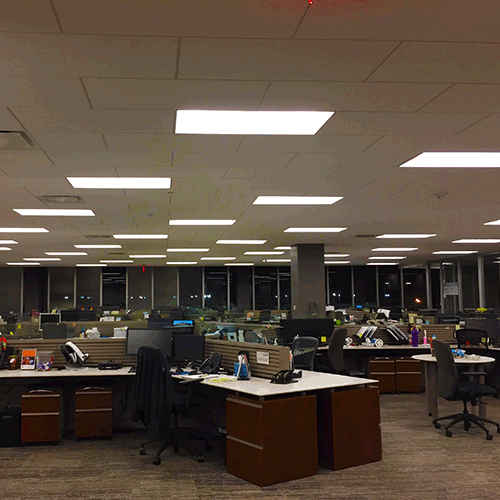EEOC v. Abercrombie: Religious Rights in the Workplace

On June 1, 2015, the U.S. Supreme Court, in EEOC v. Abercrombie, held that an employer could be held liable for not being able to accommodate a religious practice under Title VII of the Civil Rights Act of 1964, even though the employee or job applicant did not expressly request an accommodation. In a term of tough cases, Justice Antonin Scalia, who authored the Court’s majority opinion, characterized the decision in Equal Employment Opportunity Commission v. Abercrombie & Fitch Stores, Inc. as a “really easy one”.
The Facts in EEOC v. Abercrombie
The EEOC alleged that Abercrombie did not hire applicant Samantha Elauf, a practicing Muslim, because she wore a headscarf to her interview, which violated the retailer’s controversial dress code. The suit specifically alleges that Abercrombie’s actions violated Title VII of the Civil Rights Act of 1964, which prohibits discrimination based on religion and requires employers to accommodate the sincere religious beliefs or practices of employees unless doing so would impose an undue hardship on the business.
In its defense, Abercrombie argued that it could not be held liable for discrimination because Elauf never stated that she wore the headscarf for religious reasons. The Tenth Circuit Court of Appeals agreed, holding that ordinarily, an employer cannot be liable under Title VII for failing to accommodate a religious practice until the applicant (or employee) provides the employer with actual knowledge of the need for an accommodation.
The Court’s Decision in EEOC v. Abercrombie
By a vote of 8-1, the Supreme Court reversed. Justice Clarence Thomas filed an opinion concurring in part and dissenting in part.
Under the majority decision, an applicant need only show that his need for an accommodation was a motivating factor in the employer’s decision, not that the employer had knowledge of his need.
As Justice Scalia explained, “An employer who has actual knowledge of the need for an accommodation does not violate Title VII by refusing to hire an applicant if avoiding that accommodation is not his motive. Conversely, an employer who acts with the motive of avoiding accommodation may violate Title VII even if he has no more than an unsubstantiated suspicion that accommodation would be needed.”
In support of its decision in EEOC v. Abercrombie, the majority pointed to the language of Title VII, which prohibits employers from refusing to hire someone “because of” religion. According to the Court, the “because of” standard is understood to mean that the protected characteristic cannot be a “motivating factor” in an employment decision. In addition, because the statute lacks a knowledge requirement, the employer need not actually know that there is “a conflict between an applicant’s religious practice and a work rule.”
Previous Articles
SCOTUS Decision in Bowe v. United States Is First of the 2026 Term
by DONALD SCARINCI on February 5, 2026
In Bowe v. United States, 607 U.S. ___ (2026), the U.S. Supreme Court held that Title 28 U.S.C. § ...
SCOTUS Rules State Can’t Immunize Parties from Federal Civil Liability
by DONALD SCARINCI on January 29, 2026
In John Doe v. Dynamic Physical Therapy, LLC, 607 U.S. ____ (2025) the U.S. Supreme Court held that...
Supreme Court to Address Racial Discrimination in Jury Selection
by DONALD SCARINCI onWhile the U.S. Supreme Court has concluded oral arguments for the year, it continues to add cases t...
The Amendments
-
Amendment1
- Establishment ClauseFree Exercise Clause
- Freedom of Speech
- Freedoms of Press
- Freedom of Assembly, and Petitition
-
Amendment2
- The Right to Bear Arms
-
Amendment4
- Unreasonable Searches and Seizures
-
Amendment5
- Due Process
- Eminent Domain
- Rights of Criminal Defendants
Preamble to the Bill of Rights
Congress of the United States begun and held at the City of New-York, on Wednesday the fourth of March, one thousand seven hundred and eighty nine.
THE Conventions of a number of the States, having at the time of their adopting the Constitution, expressed a desire, in order to prevent misconstruction or abuse of its powers, that further declaratory and restrictive clauses should be added: And as extending the ground of public confidence in the Government, will best ensure the beneficent ends of its institution.





